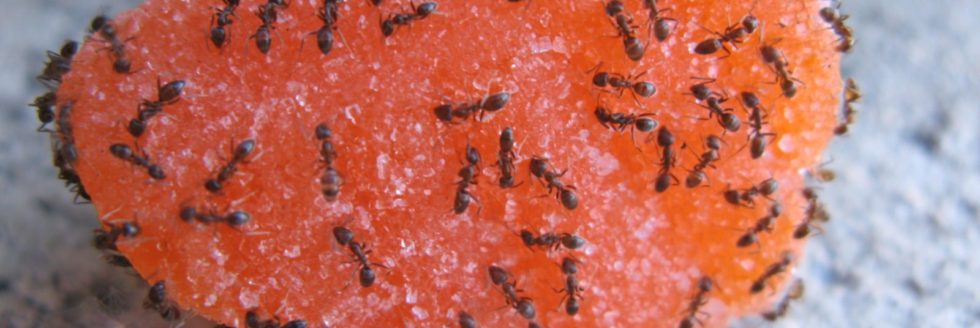Rid Your Home of Fruit Flies | 5 Environmentally Friendly Methods
Fruit Flies – The Side “Benefits” of a Trip to the Charlotte Area Farmers Market
Fourteen counties are listed in the Charlotte Observer annual guide to “Charlotte-Area Farmers Markets.” In total, the list contains forty-two nearby N.C. and S.C. fresh produce markets. Fifteen are located in Mecklenburg County. In all likelihood, you live near enough to take advantage of at least one of these local fruit bowl filling stations. Chances are also likely that when you stock up on market products you will also take home a host of pesky fruit flies.
At least a few of these airborne pests always hitch rides on the market haul. And that is not a minor problem. Quicker than the spoiling of countertop bananas, fruit flies spread throughout the kitchen and other areas of your Charlotte regional home. Prevention is the best pest control. This means:
- Wash the fruit as soon as you get home
- Cover the fruit bowl
- Keep counters clean
- Be quick to wipe up spilled juice and food crumbs
- Empty garbage often
- Routinely clean the drains in the sink
- AND Keep track of what goes in the garbage.
You’re not perfect, though, and sometimes you miss the banana peel one of the kids tossed into the trash, or the apple sitting on the counter and waiting for that second bite. That is why prevention can so quickly morph into a desperate effort at fruit fly elimination. Carolina Pest Management provides the following five tips as our way of helping you recover from the fringe benefits associated with your trip to the Charlotte area farmers market.
Fruit Flies – 5 Environmentally Safe Ways to Liberate Your Carolina Home
1) Dish Soap Mixed into Vinegar
Attract, trap and drown with this simple mixture: A small bowl of vinegar topped off with three or four drops of basic dish soap.
2) Paper Funnel Bottle Trap
Take advantage of a partially empty wine or beer bottle- the scent attracts fruit flies. Just corkscrew a paper funnel into the bottle’s narrow opening. Leave sufficient space for flies to enter. Change daily or as often as seems fitting.
3) Boiling Water
Fruit flies often nest inside sink drains. Boiling water down the drain typically resolves the issue. Note: For a bit of extra push, use boiling white vinegar. Also: Be sure to check the bathroom drains and even the washer drain.
4) Milk, Pepper and Sugar Mix
Don’t have any vinegar? Try mixing four ounces of raw sugar and two ounces of ground pepper into a pint of milk in a saucepan. Heat at a simmer for ten minutes. Transfer the warm mixture into a shallow dish. Empty once you have seen enough drowned fruit flies.
5) Apple Cider Vinegar, Unfiltered
Don’t waste a full bottle. If need be, just pour a few ounces into an empty coke bottle. Cover the opening with everyday plastic wrap or wax paper. Rubber-band the wrap in place. Using a medium-size Phillip screwdriver or even a nail, punch a hole in the middle of the covered opening. This method lets fruit flies in the bottle and keeps them there.
Fruit Fly Breeding Rate – Better Than 100 Eggs Per Day
Fruit flies lead an industrious lifestyle. They have no problem drifting from your food to the cat litter box and back to your food again. Toilet to drain or toilet to countertop; it makes no difference to the fruit flies. They simply follow the food source.
Fruit flies can lay up to 500 eggs at a time. Needless to say, it only takes a few females to flood your house with thousands of these airborne pests. Do not cease placing traps too early. Just because you don’t see them does not mean you don’t have them.
Also, don’t forget to practice daily fruit fly prevention.
Carolina Pest Management is the top green pest control service center in the Charlotte area. Reap the benefits of select environmentally-friend pest control treatments. Start your quarterly service plan now and enjoy a $15 of discount on initial general pest services.


